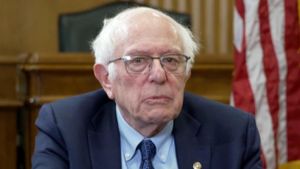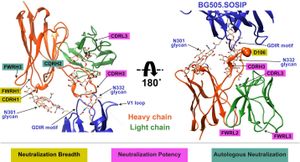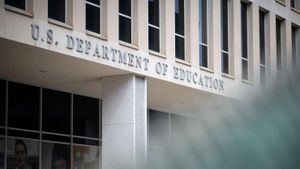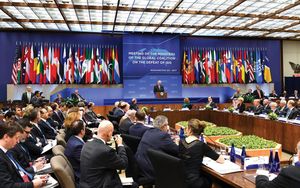The Trump administration's recent move to terminate Temporary Protected Status (TPS) for over 300,000 Venezuelans has ignited concern among immigrant rights activists and community leaders. This sweeping decision leaves many Venezuelan nationals vulnerable to imminent deportation, aggregately affecting about half of the 600,000 Venezuelans living legally in the United States under TPS.
According to documents obtained by The New York Times, the revocation is the latest indication of the administration's unwavering grip on immigration policy and its accelerative momentum toward stricter enforcement. Secretary of Homeland Security Kristi Noem confirmed this action during her announcement over the weekend, citing the national interest of the United States as the rationale for the decision.
"After reviewing country conditions and considering whether permitting Venezuelan nationals covered by the 2023 designation is contrary to the national interest of the United States, the Secretary of Homeland Security determined Venezuela no longer continues to meet the conditions for the 2023 designation," stated the notice released by the administration.
The announcement is particularly jarring as it contrasts sharply with the Biden administration's earlier designations offering protections to Venezuelans fleeing their country's dire political and economic conditions. TPS was initially created for individuals from nations devastated by war or natural disasters—a program intended for humanitarian relief.
During President Biden's term, TPS protections for Venezuelans were established to reflect the turmoil within the country under President Nicolás Maduro's authoritarian regime. The extension granted by Biden's administration had been widely celebrated by affected individuals and advocates as it provided them with work permissions and protection from deportation.
Republican critics have long argued, and Noem reiterated, claims asserting TPS has evolved from its original intention, serving as quasi-permanent immigration status rather than temporary relief.
Significantly, Noem's contemporaneous remarks implied critiques of the Venezuelan nationals themselves. "The truth is folks from Venezuela who have come to this country are members of the Tren de Aragua, and Venezuela purposely emptied their prisons and mental health facilities and sent them to the United States of America," said Noem on the program Meet the Press, misreferring to TPS as "TPP.”
Far from quelling the uproar, this verbiage has drawn ire across multiple sectors of the immigrant advocacy community, who argue not only do generalized assumptions lack foundation, but also fundamentally misrepresentation the character of the Venezuelans seeking refuge.
And the scrutiny doesn’t stop at community response; this heightened vulnerability of TPS holders could have immediate and dire consequences, particularly across states like Florida, where the Venezuelan population is the largest. Legal experts warn of potential mass deportations, which the administration is already gearing up to manage through stringent enforcement of immigration laws.
Community leaders such as Nicole Reinoso, the newly elected councilwoman in Doral, Florida—a city with deep Venezuelan roots—expressed alarm over the decimation of TPS. "It disregards the humanitarian and political crisis affecting Venezuelans, putting thousands at risk," she lamented.
Adding to the distress are fears of family separations if loved ones are taken from the U.S. back to Venezuela—a nation many have fled due to chronic scarcity of resources and governmental oppression.
Kudos from segments of the Republican Party sound more conflicted. While some GOP lawmakers, including Florida's Congressman Carlos Gimenez, have echoed support for Venezuelan TPS holders, they simultaneously tread lightly on the administration's crackdown. Gimenez noted, "The great majority of Venezuelans here are good people who are working and yearning for liberty." He urged for a solution to the forthcoming legal chaos spurred by Noem's declaration.
While Noem’s closing remarks touted the end of TPS for Venezuelans as restoring integrity, many remain wary of the consequences their community will bear. Maureen Porras, Doral's vice mayor, contended, "The administration is condemning these individuals to uncertainty, fear, and potential harm." The backlash is amplified by the notion this decision came swiftly after automatic renewals would have extended TPS for Venezuelans.
With many Venezuelans now facing uncertainty about their residency status, mounting appeals for legislative intervention loom large. Stakeholders, advocates, and experts alike are calling for the federal government to reconsider the precarious situation confronting Venezuelans and revive humanitarian protections.
Recent developments have now left immigrant rights organizations poised for possible legal challenges against the administration's abrupt moves, arguing against precipitate changes to immigration policy without credible evidence. Further, they warn time is of the essence to retain protections for vulnerable groups facing dire consequences if sent back to Venezuela.
Experts agree the country currently finds itself ensnared within one of its most consequential humanitarian crises, rendering the abrupt termination of TPS for Venezuelans not just seemingly punitive, but potentially disastrous. Without adequate recourse, the humanitarian crisis remains poised to worsen.



